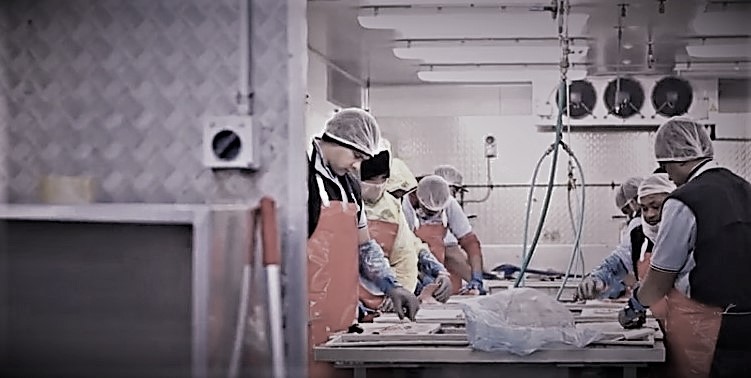Changes in consumer behaviours and legislation will make addressing issues of modern slavery a key factor for businesses of all sizes. Small and medium enterprises (SMEs), through the flow-on effects of larger businesses’ reporting requirements and consumer expectations, need to know how to prepare to address modern slavery. Yet Australia’s largest employer sector and major supplier to corporates has received little or poorly targeted attention. SMEs are largely ‘unaware and unprepared’ and, as a result, are opening themselves up to brand and financial risk.
Modern slavery refers to ‘situations of exploitation that a person cannot refuse or leave because of threats, violence, coercion, deception, and/ or abuse of power’[i In Australian, over 4000 people currently endure enslavement. Worldwide, the estimate is over 40 million people, 70 percent of them females.
The Australian government has just introduced modern slavery legislation. NSW has just become Australia’s first juristiction to pass a Modern Slavery Act, requiring businesses with $50 million or more annual turnover to address slavery in their systems.
These six points broadly set out why SMEs must be at the table on addressing modern slavery.
- SMEs are part of the problem of modern slavery. So they must be deliberately included as part of the solution. As report after report on enslavement of employees has shown, slavery is prevalent in businesses based on, recruiting from or purchasing from systems of trust and group identity, networks and values, which is how SME supply chains often evolve. Despite this, SMEs are an ‘elephant in the room’ on slavery.
- Even if they are never targeted directly under anti-slavery legislation, SMEs still have legal requirements relating to modern slavery in their own operations or supply chains. Existing information and resources, should incorporate slavery both from the employee and employer perspective. Awareness raising around this should ensure that no SME can say ‘I didn’t know’.
- Corporates with anti-slavery reporting requirements expect their SME partners to ‘police’ their own supply chains. In practical and relative terms, this means SMEs may have to do as much, if not more, ‘heavy lifting’ on addressing slavery. But it’s also acknowledged SMEs will struggle to do this with their resources and without the leverage over suppliers enjoyed by corporates. This deep contradiction has not been addressed.
- SMEs don’t have the internal resources and budgets to assign to modern slavery that large corporates can draw on. This flags a problem for SMEs that are compelled to act on slavery because of their corporate partners’ reporting requirements, or who choose to act. They require affordable (or free) fit-for-purpose guidance and tools.
- Resources available to help businesses are overwhelmingly not fit for purpose for, or scaleable to, time-poor and resource-poor SMEs. Resources are not pitched with an SME audience in mind. From short courses to guides, many resources are:
- densely worded, semi-academic and narrative in style. Some are more reports than resources
- illustrated with case studies that are not relatable to SMEs and guidance that is not practicable for SMEs
- sacrifice practical, easily useable formatting for superficial graphic attractiveness; and
- ‘hidden in plain sight’. Locating resources – and the right resources – can be time consuming and perplexing. Clear pathways to SME-appropriate resources are important.
There is a rise in slavery resources for business that are behind paywalls or are ‘feeders’ to paid consulting. Any SME committed to or required to act on modern slavery should be able to access fit-for-purpose, financially accessible resources and support. Instead, this flags an emerging un-level playing field that pits businesses with the budget for outside support against those that don’t.
Governments, tertiary institutions, peak bodies, not-for-profits and private enterprise all have a part in ensuring a level playing field among businesses of all sizes on addressing slavery.
- SMEs must have a representative voice at the table on addressing modern slavery. Many SMEs are quietly acting on worker exploitation in their systems. Their efforts should be articulated and harnessed on behalf of their respective industries and the sector overall. Industry peak bodies have an important role here, which must be clarified, encouraged and activated on behalf of their SME members, which are likely to turn to their industry representative bodies before other organisations when it comes to addressing slavery.
This would have a multiplying effect across the sector. It would powerfully demonstrate how SMEs that are prepared to address slavery can differentiate themselves in the marketplace and focus customers on the value of buying with confidence from their ‘clean’ businesses.
The Australian Federal Government is to establish a business unit supporting businesses that must report on addressing slavery in their operations and supply chains. As national modern slavery legislation gets underway, this is an important window of opportunity to consider how this may include SMEs.
If this article raised questions for you about putting in anti-slavery measures and preparing to answer questions from customers or your business partner/s about modern slavery in your systems, contact Anna Ridgway, Director at InterMondo, at anna@intermondo.com.au.
[i] International Labour Organization and Walk Free Foundation, Global Estimates of Modern Slavery, International Labor Office (ILO), Geneva, Switzerland, 2017, p. 16


